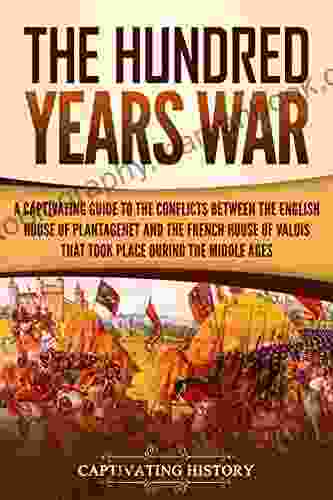The Paideia Way: Giants in the History of Classical Education

The Paideia Way is a classical education approach that emphasizes the study of the great works of literature, history, and philosophy. This approach to education has been around for centuries, and it has been used to educate some of the most influential people in Western history.
The Paideia Way originated in ancient Greece, where the term "paideia" referred to the education of a free citizen. This education was designed to develop the mind and character of the individual, and it was considered essential for a person to live a fulfilling life.
The Paideia Way was later adopted by the Romans, who used it to educate their own citizens. The Romans added a strong emphasis on rhetoric and oratory to the Paideia curriculum, and they also began to use Latin as the language of instruction.
4.7 out of 5
| Language | : | English |
| File size | : | 5304 KB |
| Text-to-Speech | : | Enabled |
| Screen Reader | : | Supported |
| Enhanced typesetting | : | Enabled |
| Word Wise | : | Enabled |
| Print length | : | 92 pages |
| Lending | : | Enabled |
The Paideia Way continued to be used in the Middle Ages, but it was gradually replaced by a more narrow and specialized approach to education. This new approach focused on the study of the seven liberal arts: grammar, rhetoric, logic, arithmetic, geometry, astronomy, and music.
The seven liberal arts were considered to be the foundation of a well-rounded education, and they were used to prepare students for a variety of careers. However, this new approach to education did not have the same emphasis on the development of the mind and character as the Paideia Way.
The Paideia Way was revived during the Renaissance, when scholars began to rediscover the works of the ancient Greek and Roman authors. These scholars argued that the Paideia Way was the best way to educate the leaders of the future, and they began to incorporate its principles into their own teaching.
The Paideia Way became the dominant approach to education in Europe during the Renaissance, and it continued to be used until the late 17th century. However, it was gradually replaced by a more modern approach to education, which focused on the study of science and mathematics.
The Paideia Way has continued to be used in a variety of educational settings over the centuries. In recent years, there has been a renewed interest in the Paideia Way, and it is now being used in a number of schools and colleges around the world.
The Paideia Way is a valuable approach to education because it emphasizes the development of the whole person. It teaches students to think critically, to communicate effectively, and to live a virtuous life. The Paideia Way has produced some of the most influential people in Western history, and it continues to be a relevant and important approach to education today.
There have been many giants in the history of the Paideia Way. These individuals have made significant contributions to the development and dissemination of this approach to education.
- Plato (428-348 BC) was one of the most influential philosophers in Western history. He founded the Academy in Athens, which was one of the first institutions of higher learning in the world. Plato's philosophy emphasized the importance of education, and he believed that the goal of education was to develop the mind and character of the individual.
- Aristotle (384-322 BC) was another influential philosopher who made significant contributions to the Paideia Way. He was a student of Plato, and he later founded his own school, the Lyceum. Aristotle's philosophy emphasized the importance of logic and reason, and he believed that education should be based on the study of the great works of literature, history, and philosophy.
- Cicero (106-43 BC) was a Roman statesman and orator who was one of the most influential figures in the history of the Paideia Way. He was a student of the Greek philosophers, and he believed that the Paideia Way was the best way to educate the leaders of the future. Cicero wrote extensively about education, and his writings had a major impact on the development of educational thought in the West.
- Quintilian (35-96 AD) was a Roman rhetorician who wrote one of the most influential works on education in the ancient world, the "Institutio Oratoria." Quintilian's work emphasized the importance of a well-rounded education, and he believed that the Paideia Way was the best way to achieve this goal.
- Erasmus (1466-1536) was a Dutch humanist who was one of the most influential figures in the Renaissance. He was a proponent of the Paideia Way, and he believed that education should be based on the study of the great works of literature, history, and philosophy. Erasmus wrote extensively about education, and his writings had a major impact on the development of educational thought in the West.
These are just a few of the many giants who have contributed to the history of the Paideia Way. These individuals have helped to shape this approach to education, and they continue to inspire educators today.
The Paideia Way is a classical education approach that has been used to educate some of the most influential people in Western history. This approach to education emphasizes the development of the whole person, and it teaches students to think critically, to communicate effectively, and to live a virtuous life. The Paideia Way is a valuable approach to education, and it continues to be relevant and important today.
4.7 out of 5
| Language | : | English |
| File size | : | 5304 KB |
| Text-to-Speech | : | Enabled |
| Screen Reader | : | Supported |
| Enhanced typesetting | : | Enabled |
| Word Wise | : | Enabled |
| Print length | : | 92 pages |
| Lending | : | Enabled |
Do you want to contribute by writing guest posts on this blog?
Please contact us and send us a resume of previous articles that you have written.
 Top Book
Top Book Novel
Novel Fiction
Fiction Nonfiction
Nonfiction Literature
Literature Paperback
Paperback Hardcover
Hardcover E-book
E-book Audiobook
Audiobook Bestseller
Bestseller Classic
Classic Mystery
Mystery Thriller
Thriller Romance
Romance Fantasy
Fantasy Science Fiction
Science Fiction Biography
Biography Memoir
Memoir Autobiography
Autobiography Poetry
Poetry Drama
Drama Historical Fiction
Historical Fiction Self-help
Self-help Young Adult
Young Adult Childrens Books
Childrens Books Graphic Novel
Graphic Novel Anthology
Anthology Series
Series Encyclopedia
Encyclopedia Reference
Reference Guidebook
Guidebook Textbook
Textbook Workbook
Workbook Journal
Journal Diary
Diary Manuscript
Manuscript Folio
Folio Pulp Fiction
Pulp Fiction Short Stories
Short Stories Fairy Tales
Fairy Tales Fables
Fables Mythology
Mythology Philosophy
Philosophy Religion
Religion Spirituality
Spirituality Essays
Essays Critique
Critique Commentary
Commentary Glossary
Glossary Bibliography
Bibliography Index
Index Table of Contents
Table of Contents Preface
Preface Introduction
Introduction Foreword
Foreword Afterword
Afterword Appendices
Appendices Annotations
Annotations Footnotes
Footnotes Epilogue
Epilogue Prologue
Prologue Mary Ziegler
Mary Ziegler Jenny Lewis
Jenny Lewis Jack Stroke
Jack Stroke Amber Valentine
Amber Valentine Brent Towns
Brent Towns Leon Aureus
Leon Aureus Ed Rosenthal
Ed Rosenthal Felicity Pulman
Felicity Pulman Langston Hughes
Langston Hughes Tom Wainwright
Tom Wainwright Thomas Thompson
Thomas Thompson Dennis Younger
Dennis Younger John P Napolitano
John P Napolitano D G Redd
D G Redd Stuart Woods
Stuart Woods David Gates
David Gates Steve Snyder
Steve Snyder Codey Cross
Codey Cross John Stack
John Stack Justin Farley
Justin Farley
Light bulbAdvertise smarter! Our strategic ad space ensures maximum exposure. Reserve your spot today!

 Eric HayesUnraveling the Enigmatic Jerusalem Puzzle by Laurence Bryan: A Comprehensive...
Eric HayesUnraveling the Enigmatic Jerusalem Puzzle by Laurence Bryan: A Comprehensive...
 Forrest BlairAn Unforeseen Tragedy Forces Family to Wage a Battle for Survival: A Tale of...
Forrest BlairAn Unforeseen Tragedy Forces Family to Wage a Battle for Survival: A Tale of... Phil FosterFollow ·5k
Phil FosterFollow ·5k Colt SimmonsFollow ·19.1k
Colt SimmonsFollow ·19.1k Jarrett BlairFollow ·13k
Jarrett BlairFollow ·13k Gordon CoxFollow ·18.8k
Gordon CoxFollow ·18.8k Duane KellyFollow ·2.5k
Duane KellyFollow ·2.5k Roy BellFollow ·14k
Roy BellFollow ·14k Morris CarterFollow ·12.9k
Morris CarterFollow ·12.9k Douglas FosterFollow ·17.8k
Douglas FosterFollow ·17.8k

 Oscar Bell
Oscar BellDream Keeper II by Parris Afton Bonds: An Exploration of...
Dream Keeper II by Parris...

 Eric Hayes
Eric Hayes100 Ultimate Smooth Jazz Riffs For Violin: Elevate Your...
Welcome to the ultimate...

 Vernon Blair
Vernon BlairAll You Need to Know to Start Investing and Trading...
Binance is...

 Greg Foster
Greg FosterShalott: Into the Unknown
In the heart of medieval...

 Will Ward
Will WardMoney Making Money Instead of You Working: Unleashing the...
In a world where...
4.7 out of 5
| Language | : | English |
| File size | : | 5304 KB |
| Text-to-Speech | : | Enabled |
| Screen Reader | : | Supported |
| Enhanced typesetting | : | Enabled |
| Word Wise | : | Enabled |
| Print length | : | 92 pages |
| Lending | : | Enabled |










